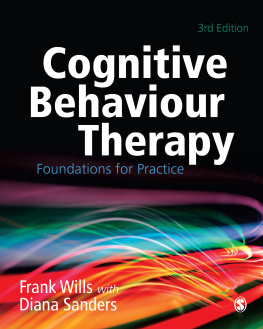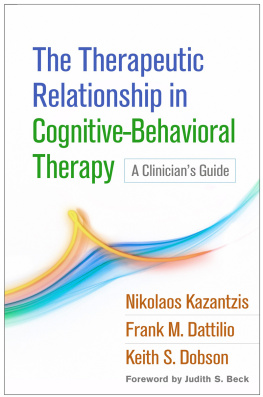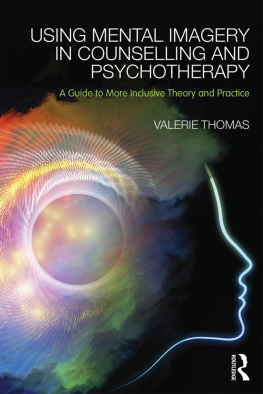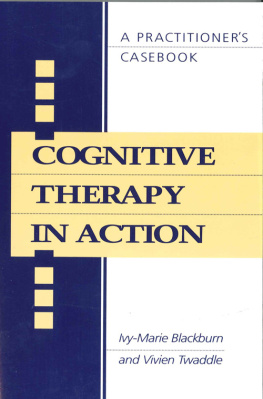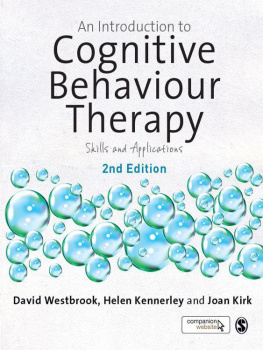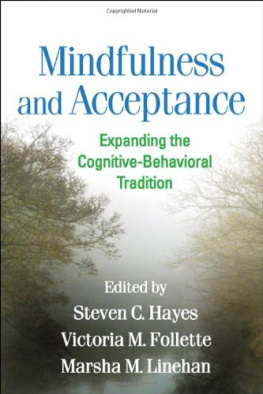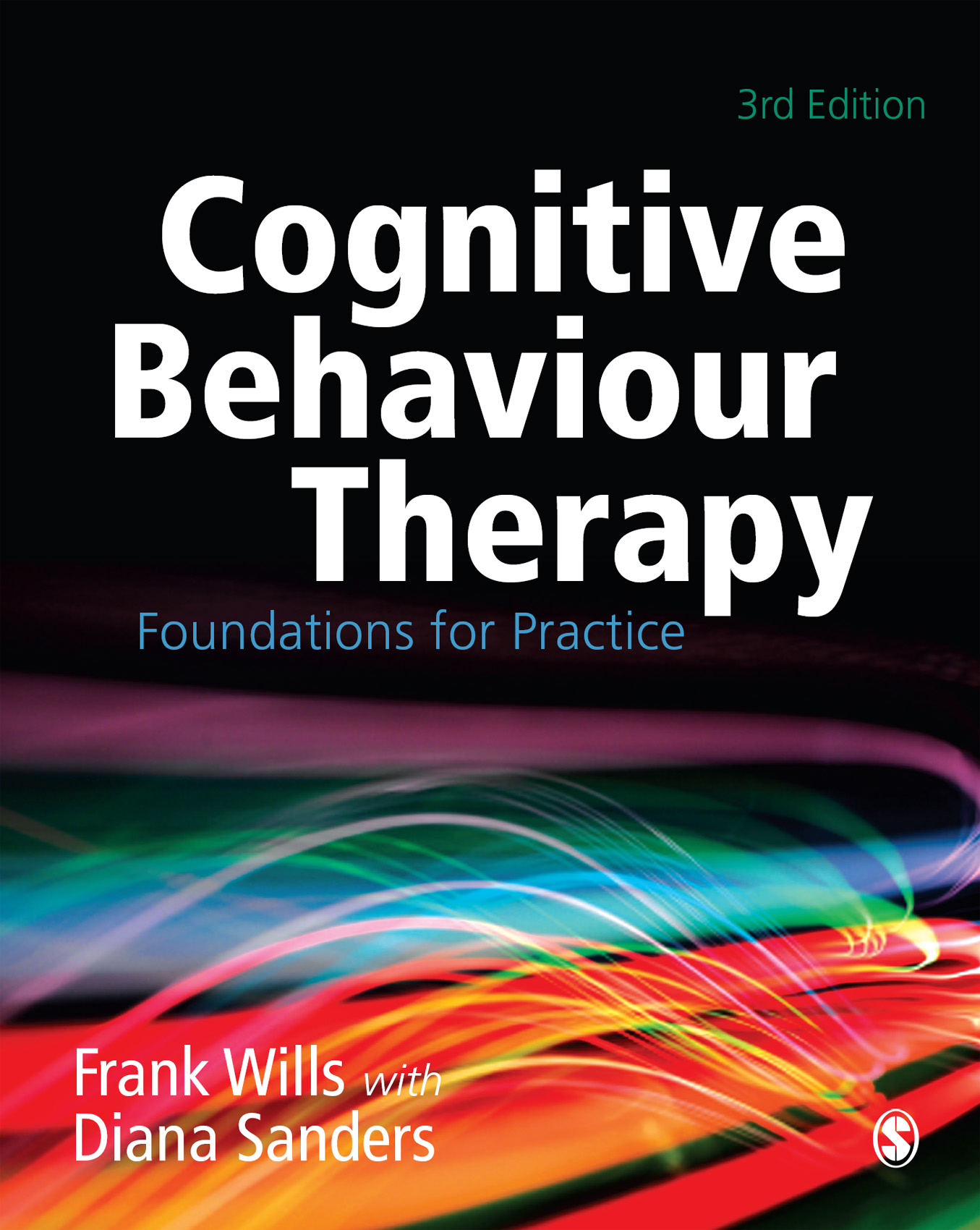SAGE Publications Ltd
1 Oliver's Yard
55 City Road
London EC1Y 1SP
SAGE Publications Inc.
2455 Teller Road
Thousand Oaks, California 91320
SAGE Publications India Pvt Ltd
B 1/I 1 Mohan Cooperative Industrial Area
Mathura Road
New Delhi 110 044
SAGE Publications Asia-Pacific Pte Ltd
3 Church Street
#10-04 Samsung Hub
Singapore 049483
Frank Wills and Diana Sanders 1997, 2005
Frank Wills with Diana Sanders 2013
First edition published 1997. Reprinted 2000, 2002, 2003, 2004
Second edition published 2005. Reprinted 2008, 2009, 2011
This third edition published 2013
Apart from any fair dealing for the purposes of research or private study, or criticism or review, as permitted under the Copyright, Designs and Patents Act, 1988, this publication may be reproduced, stored or transmitted in any form, or by any means, only with the prior permission in writing of the publishers, or in the case of reprographic reproduction, in accordance with the terms of licences issued by the Copyright Licensing Agency. Enquiries concerning reproduction outside those terms should be sent to the publishers.
Library of Congress Control Number: 2012930408
British Library Cataloguing in Publication data
A catalogue record for this book is available from the British Library
ISBN 9781-849205641
ISBN 9781-849205658 (pbk)
Editor: Alice Oven
Assistant editor: Kate Wharton
Production editor: Rachel Burrows
Copyeditor: Solveig Servian
Proofreader: Derek Markham
Marketing manager: Tamara Navaratnam
Cover design: Joni Strudwick
Typeset by: C&M Digitals (P) Ltd, Chennai, India
Printed by MPG Books Group, Bodmin, Cornwall
Preface to the Third Edition
As we engaged in writing this third edition of our book first published in 1997, we have realised that cognitive behaviour therapy (CBT) is on the march perhaps even at the double. There have been numerous new developments and changes since we both trained in CBT in the early 1990s and the pace of change shows no signs of easing. It has been challenging to write an account of the model that retains its basic integrity but also reflects developing diversity within it. We were both trainees in one of the early cohorts of the Oxford Cognitive Therapy training course a veritable engine room for CBT development in the UK. Even as we wrote the first edition of this book, Cognitive Therapy: Transforming the Image, in 1997 a major new development was evident in schema-focused therapy (SFT) and first attempts to address interpersonal and characterological issues. As we wrote the second edition in 20045, we had to think about how the transdiagnostic and metacognitive approaches and mindfulness-based cognitive therapy (MBCT) were to be understood and incorporated into a coherent model of practice. We were also noticing the first stirrings of acceptance and commitment therapy (ACT) and compassion-focused therapy (CFT) and contemplating what they had to say. Now as we come to submit this third edition in late 2011 we have seen yet more development in all these trends plus what we have called the late flowering of the new behavioural approach. It is possible to see in all this diversity parallels with trends within the historical development of other models such as psychoanalysis and humanistic therapy. One can also recognise the same potential for schism and infighting and wonder if the overall integrity of CBT can be retained. Our approach has been to keep our powder dry and not to over-react in the face of potential fracturing. We have no doubt that important points of development are raised in many of the new waves of CBT and that they can be enthusiastically embraced, but they should not be uncritically embraced. There are other motives, including academic kudos, involved in developing new products. Psychological therapy is such a fundamentally difficult activity that all of us sometimes think that if only we had one more theory or technique up our sleeves we would finally have it all sown up. We still, after 30 and 40 years of practice respectively, think this life-long learning indeed! We have been very aware that alongside the production of waves of CBT there has also been fearful consumer reactions that one will not be included in the latest thing and suddenly find oneself pass, fallen and trampled down by rush of people literally running to avoid exclusion from the hot conference workshop. This edition then focuses on retaining the integrity and parsimony of the original CBT approach whilst making appropriate assimilation from new developments from both CBT and other therapeutic models. We will return to these themes to assess how well we think we have managed this testing task in the Epilogue of this book.
A note on authorship: For this edition Diana has mainly contributed material on MBCT so that Frank has taken more responsibility for writing the rest of the book. Whilst both authors take responsibility for its overall thrust, there are inevitably small differences of emphasis at times.
Acknowledgements
We would like to acknowledge the following colleagues and friends who have helped us with this edition some are the usual suspects, others new. We thank them with all our hearts: Sheila Brennan, Mo Chandler, Amanda Cole, Elaine Davies, Janet Gray, Alice Oven, Kim Richardson, Christina Surawy, Kate Wharton, Mark Williams, Annie Wills and, of course, each other.
Part I Cognitive Behaviour Therapy Theory, Model and Structure
CBT: A Developing Model
Cognitive behaviour therapy (CBT), as developed by A. T. Beck and others, is built on the assumption that thinking processes both influence and are influenced by emotional and behavioural responses in many different psychological problems. Therapy therefore aims to modify cognitive, emotional and behavioural processes in an experimental way to test whether modification has positive effects on the client's difficulties. While clients may come to therapy asking for help with their negative thoughts, more often they come because they are feeling bad. Despite its focus on thinking, CBT is actually all about reaching and working with emotion. Cognitions and cognitive processes are emphasised because they can often provide direct and useful paths to relevant emotions. Furthermore, understanding specific thoughts, styles and processes of thinking can go a long way to explain negative feelings to clients, who may well have been experiencing them as incomprehensible and frightening. The way in which cognition influences emotion and behaviour is at the heart of CBT and the basis of both the early models, developed in the 1970s, and current theory and practice.

